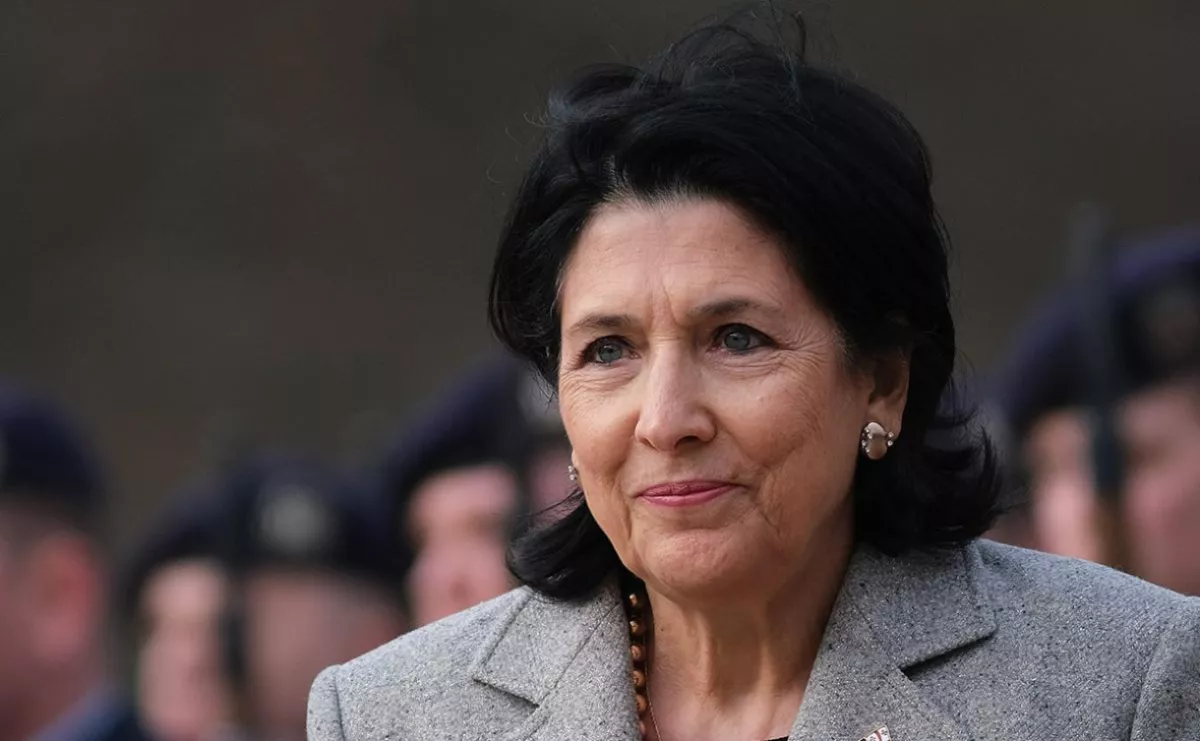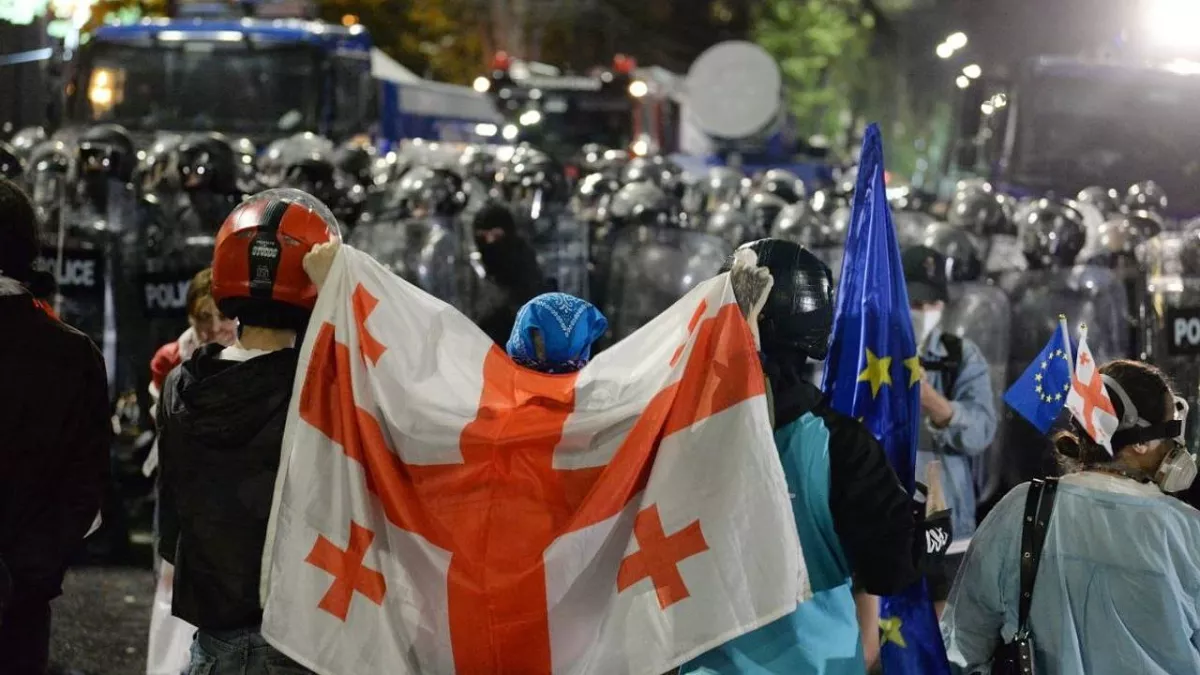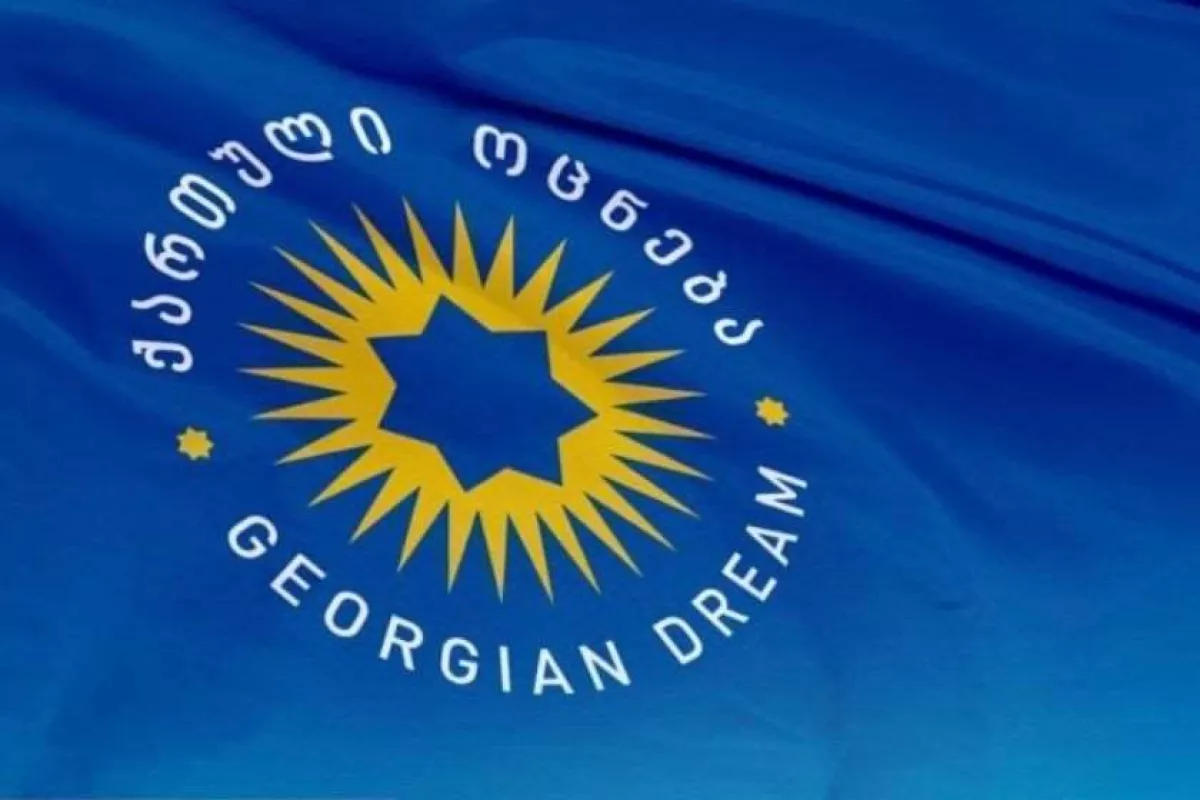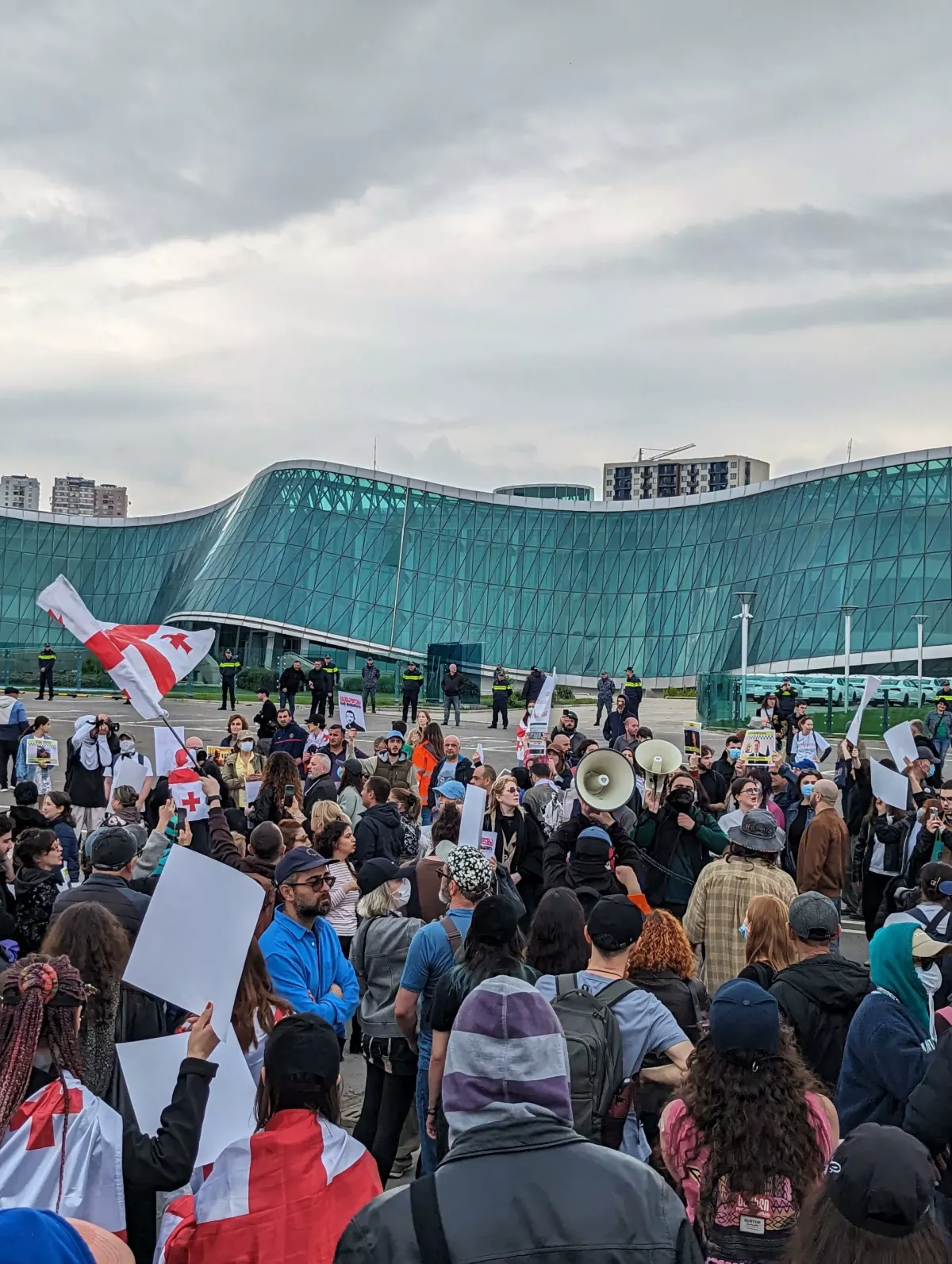Zourabichvili’s coalition plans A step toward unrest in Georgia
On April 30, 2025, former President of Georgia Salome Zourabichvili, who had recently organised the so-called "Resistance Platform," met with the ambassadors of EU countries.
After this meeting, Zourabichvili unexpectedly declared: "We must be prepared not only for parliamentary elections but also for what comes after—the formation of a coalition government." She also expressed complete confidence that the current Georgian government – in her terminology, the "regime" – is allegedly "approaching its end."

A new escalation of the situation in Georgia is not ruled out. External forces are creating the necessary backdrop for this. On May 5, the U.S. House of Representatives supported the MEGOBARI Act, which targets the current Georgian government. The full title of the bill is "Mobilizing and Enhancing Georgia’s Options for Building Accountability, Resilience, and Independence Act." Its official name is also referred to as the law "To counter the influence of the Chinese Communist Party, the Iranian Regime, and the Russian Federation in the nation of Georgia."
However, the MEGOBARI Act has not yet been fully passed. After the House of Representatives, it must be reviewed and put to a vote in the Senate, and only if approved by both chambers will it be sent to the President of the United States for signing. Nevertheless, the opposition now has an additional reason to claim their support from the United States.
Salome Zourabichvili’s statement about a “coalition government” likely indicates that the pro-Western opposition has no intention of coming to power through legal, constitutional means — via elections, whether regular or “early”.

Their strategy is a coup and a violent seizure of power. For this, they are ready to use any pretext or provocation, or even artificially create them.
The existence of the so-called "coalition government" is necessary for the opposition so that, immediately after such provocations, they can claim power, without waiting for elections.
Today, Zourabichvili is signalling that she would like to form this "coalition government" in advance, for future events that, as she hopes, will shake the current government's position.
And despite the fact that some opposition members have called the former president's initiative "untimely," in reality, an artificial situation is beginning to be created in Georgia, where the "coalition government" could be demanded by crowds taken to the streets. The population is clearly being provoked again into mass protests against the current government. Meanwhile, Zourabichvili's external "patrons" have already realised that it will be difficult to mobilise Georgians onto the streets and barricades "for the European choice."
Firstly, the current government formally does not reject European integration, and organising unrest and bloodshed for the sake of "accelerating EU accession" seems excessive, even to those citizens who share European illusions.
Secondly, Georgia clearly remembers how the Maidan in Kyiv began under the slogans of "European future" and "European choice," and where it ultimately led Ukraine. The opposition needs new scenarios to destabilise the situation, and these are already being developed.
In particular, the following strategy is possible: accuse the current government of "repression," "excessive violence and violation of human rights," find "victims of the regime's arbitrariness," appeal to society’s sympathy, and use this wave to attempt to overthrow the government.

It was the violation of human rights during the rule of Mikheil Saakashvili and his team that led voters to choose the Georgian Dream in the 2012 parliamentary elections. At that time, society was outraged by reports of violence, abuse, and torture of prisoners, especially in Prison No. 8 in the Tbilisi district of Gldani. Nearly 13 years later, the opponents of the Georgian Dream would like to use the same tactic against them—accusations of "in-prison violence." It is no coincidence that the few but regular protests in front of the parliament are now shifting towards the Ministry of Internal Affairs. On May 4, opposition activists held a march from the Isani metro station to the Ministry of Internal Affairs.
The gathering point and final destination of the march were chosen deliberately: according to the protesters, the Ministry of Internal Affairs bears the primary responsibility for the "repression."

At the Ministry of Internal Affairs building, participants of the protest once again demanded the resignation of the government and the release of those detained during the protests.
On the same day, 46-year-old prisoner Ioseb Gorgadze died at the Tbilisi clinic Vivamedi. Gorgadze had been transferred from Prison No. 8 in January with numerous severe injuries. This information was quickly spread by opposition media and social networks. Gorgadze was accused of causing a fatal car accident in October 2024 near the village of Tsalka, which resulted in the deaths of four supporters of the Georgian Dream, who were returning from a pre-election rally of the party in Tbilisi. The prisoner's family suspects that he was subjected to a beating while in prison. However, the opposition has not yet turned Ioseb Gorgadze into a "martyr of the regime," as he was responsible for the death of four people and does not fit the role of an "innocent victim."
The opposition likely expects new "victims." If external instructions are given, such "victims" may be artificially created with the help of provocateurs and then used in an information campaign to accuse the government of repression. However, since May 1, 2025, the opposition’s ability to conduct such a campaign has been reduced. On that day, the opposition TV channel Mtavari ceased broadcasting, although the editorial office stated it would continue its work through its website and social networks.
Nevertheless, the authorities should not relax: too many serious external forces have bet on destabilising the situation in Georgia. Especially considering that for the "former" leadership of Salome Zourabichvili in Paris, supporting the "French outpost" in Armenia in the long term is unthinkable without control over Georgia.
Vladimir Tskhvediani, Georgia, exclusively for Caliber.Az








